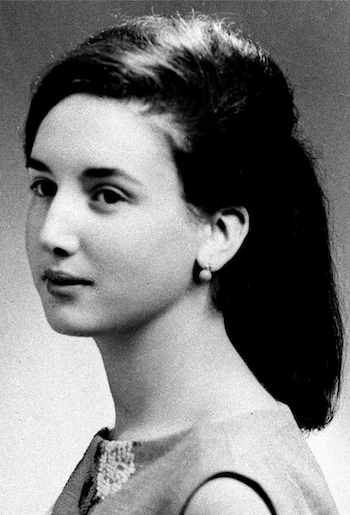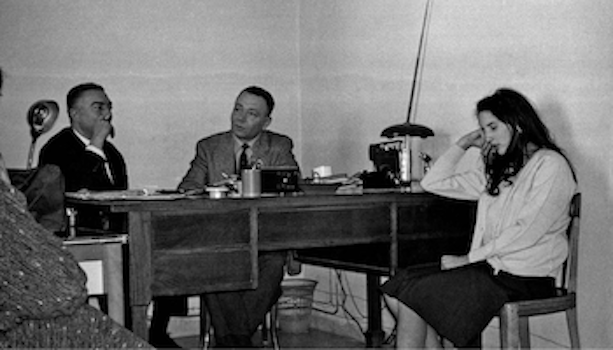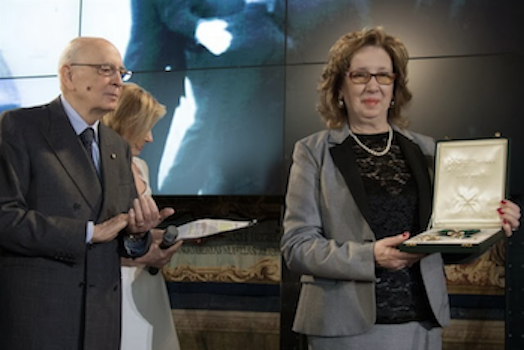
Franca Viola, born on January 9, 1947, in Alcamo, Sicily, grew up in a tight-knit family environment. She was the daughter of Bernardo Viola and Vita Ferrara. Her father, Bernardo, was a farmer who worked diligently to support the family, while her mother, Vita, managed the household. Franca had a brother, Mariano, though specific details about him are less documented.
Franca's relationship with her parents was notably strong and supportive. Her father's steadfast support during the traumatic events that unfolded later in her life highlighted the close bond they shared. When Franca was kidnapped and subjected to violence by Filippo Melodia, Bernardo stood firmly by her side, refusing to capitulate to societal pressures and threats of violence from Melodia's mafia connections.
There is limited information available regarding Franca Viola's formal education. Growing up in post-war Sicily, it is likely that Franca attended local schools typical for girls of her time and socioeconomic background. Education in post-war Sicily, especially for girls, was often limited by both socioeconomic and cultural factors. Local schools were typically modest, with basic facilities and resources. They provided fundamental education, focusing on reading, writing, arithmetic, and religious studies. For many girls from working-class families, education beyond primary school was not always guaranteed, as economic pressures often required them to contribute to household tasks or work to support the family. However, the most significant parts of her life story were primarily about her personal experiences and the significant impact of her defiance against forced marriage, rather than her academic background.
Despite the lack of detailed information about her schooling, Franca Viola's actions demonstrate a profound sense of personal integrity and courage. Her ability to challenge societal norms and stand up for her rights suggests she possessed a strong moral compass and an intuitive understanding of justice, qualities that transcend formal education.
On December 26, 1965, Filippo Melodia invaded Franca’s home, assaulted her mother, and kidnapped Franca, along with her eight-year-old brother. He soon released her brother but kept Franca captive, raping and torturing her for eight days. Despite this, Franca resolutely refused to yield to Melodia. It was later revealed that Filippo Melodia meticulously planned the abduction of Franca Viola, hoping to force her into submission.
The police eventually rescued Franca after locating her in a countryside house and then at Melodia's sister's home. Melodia was arrested the same day. This incident marked a significant turning point for Sicily, Italy, and Italian women. Franca Viola and her family rejected the "rehabilitating marriage," resulting in Melodia facing trial.

At the time, Italian law included Article 544, which stated: "For crimes under the first chapter and Article 530, marriage between the offender and the victim extinguishes the offense, including those who participated in the same crime. If there was a conviction, the execution and penal effects cease." Rape was considered a "crime against public morality and decency" until 1996. This law, a remnant of the fascist-era Rocco Code, allowed perpetrators to absolve themselves by marrying their victims.
Franca, however, was not seen as a rape victim but as a "dishonored" woman, expected to regain her dignity by marrying her aggressor.
Despite societal pressures, Franca confided in her father that she had no intention of marrying Melodia. Her father supported her unwaveringly, and Franca, bolstered by her family's support, courageously rejected Melodia's proposal, defying the deeply entrenched norms of Sicilian culture.
The honor system remained influential until the 1960s. Honor-related murders—typically the killing of a woman's lover by her husband, father, or brother—were the most dramatic, violent, and public forms of honor crime. These cases, although treated more leniently by the Italian legal system compared to other murders, generally did go to court. This concept of honor crime was so entrenched in the public consciousness that it is widely believed the mafia often disguised their killings as honor crimes to receive lighter sentences. In contrast, abductions aimed at forced marriage were usually private matters, resolved between families rather than through legal channels.
Franca became the first Italian woman to publicly refuse a rehabilitating marriage and took Melodia to court, charging him with kidnapping, sexual assault, and intimidation. This decision exposed her and her family to threats, ostracism, and persecution from their community. Yet, Franca stood firm, declaring, "I am not anyone's property. Honor is lost by those who commit such acts, not by those who suffer them."

The trial attracted significant media attention and parliamentary involvement, highlighting the conflict between the existing legal code and public opinion. Melodia's defense tried to paint Franca as a willing participant in a so-called fuitina (elopement), but in May of 1967, he was found guilty and sentenced to 11 years in prison. Unfortunately, five of his accomplices were acquitted, and others received lenient sentences. After his release in 1976, Melodia was exiled from Sicily due to his mafia connections and was killed in 1978 in a mafia-style execution in Modena.
Despite societal expectations that Franca would be further victimized and ostracized for refusing to marry her abductor, she defied these norms. She married Giuseppe Ruisi in December 1968, and their marriage remains a testament to enduring love and mutual support. The couple has two children together, enriching their family life and symbolizing Franca's personal resilience and ability to build a future despite the trauma she endured.
Currently, Franca Viola still resides in her hometown of Alcamo, Sicily, where she lives a private life. She has chosen to stay away from the public eye, focusing on her family and personal well-being. Her continued presence in Alcamo signifies a quiet strength and a steadfast connection to her roots.
Franca’s enduring marriage to Giuseppe Ruisi, along with their two children, represents not only a personal victory but also a powerful narrative of moving forward and rebuilding one's life after adversity. Her story remains an inspiring example of courage and resilience, with her family life underscoring the triumph of love and dignity over oppression and injustice.
Franca Viola's courage and determination led to significant legal reforms. Article 544, which allowed a rapist to marry his victim to absolve his crime, was repealed in 1981. In 1996, sexual violence was reclassified as a crime against the person rather than against "public morality." In 2014, President Giorgio Napolitano honored Franca Viola with the title of Grande Ufficiale dell’Ordine al Merito della Repubblica during a public ceremony commemorating International Women’s Day.
Franca Viola's story symbolizes the struggle for women's rights in Italy and the broader global movement toward gender equality. Her courageous refusal to accept a forced marriage and her determination to seek justice against her rapist marked a pivotal moment in challenging archaic, patriarchal laws. By standing up against the oppressive norms of her time, Franca not only influenced significant legal reforms in Italy but also inspired women worldwide to advocate for their rights and resist injustice.
Her actions directly contributed to the repeal of Article 544. This landmark change was a crucial step in recognizing and protecting women's autonomy and dignity. Moreover, the reclassification of sexual violence in 1996 further emphasized the importance of viewing such acts as violations of individual rights.
Franca Viola's story continues to resonate with women today, serving as a powerful reminder of the impact one person can have in challenging and transforming unjust systems. Her defiance against societal expectations has inspired countless women to stand up for their rights, reject victim-blaming narratives, and demand legal and cultural changes in their own countries. Her legacy is reflected in the ongoing global efforts to address and combat gender-based violence, support survivors, and promote gender equality.
Furthermore, Franca's life and accomplishments are often highlighted in educational and advocacy contexts, illustrating the power of personal courage in effecting systemic change. Her story is a testament to the strength of the human spirit and the enduring impact of standing up against oppression. By breaking the silence and challenging the status quo, Franca Viola paved the way for future generations of women to pursue justice and equality, making her a timeless symbol of resilience and empowerment.
Why Did I Choose to Research Franca Viola?
Franca Viola's story inspires me profoundly. Her courage to stand up against injustice, despite facing immense societal pressure and personal danger, serves as a powerful reminder of the importance of fighting for what is right. Her determination and resilience motivate me to challenge injustices in my own life and advocate for the rights and dignity of others. Her story is not just a historical account but a continuous source of inspiration for my own journey toward empowerment and advocacy for gender equality.
Works Cited
CULLEN, N. (2016). The case of Franca Viola: Debating Gender, Nation and Modernity in 1960s Italy. Contemporary European History, 25(1), 97–115. https://doi.org/10.1017/s0960777315000491/
Franca Viola, il coraggio di dire no. (n.d.). Archivio.corriere.it. https://archivio.corriere.it/Archivio/i-percorsi/franca-viola-nozze-riparatrici-codice-donne-122016.shtml
Italia, C. (2016, March 21). Franca Viola e il primo NO al matrimonio riparatore. Medium; Chayn Italia. https://medium.com/chayn-italia/franca-viola-e-il-primo-no-al-matrimonio-riparatore-38b24dd7c2d7
TG24, S. (2023, December 26). Franca Viola, la prima donna che rifiutò il matrimonio riparatore. Tg24.Sky.it. https://tg24.sky.it/cronaca/approfondimenti/franca-viola-storia
This article was published on 9/7/24